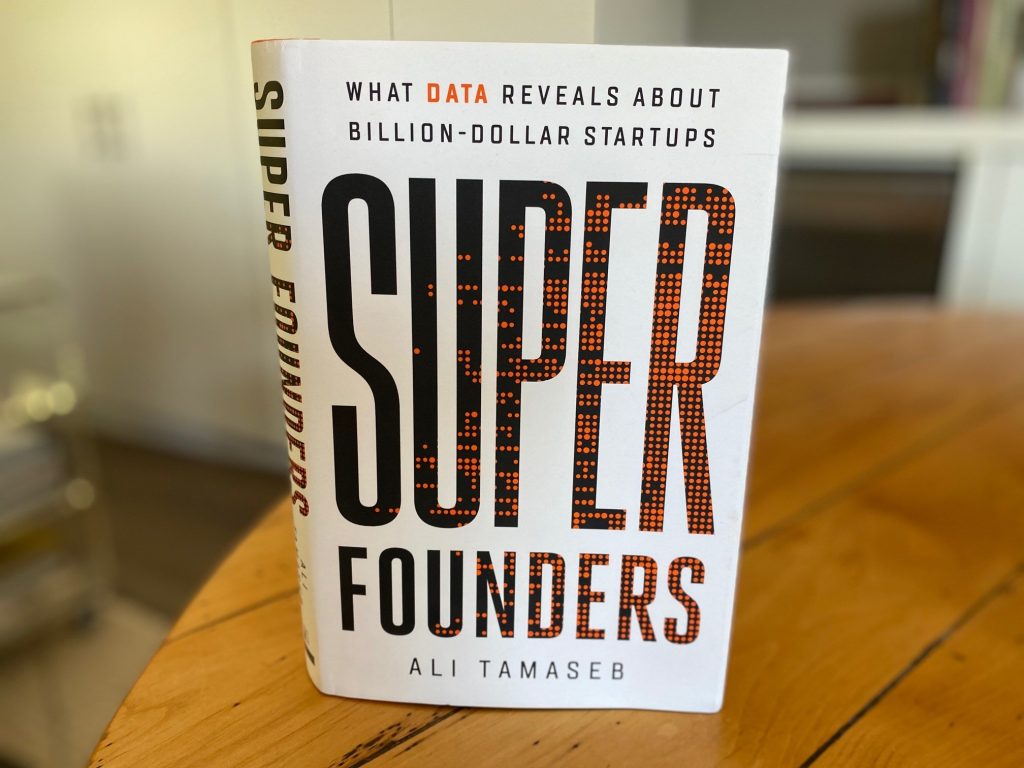Super-founders

А very informative, instructional, and motivating book about entrepreneurship.
The author compared 195 startups that reached the unicorn status against a control group.
Lots of myths busted. Lots of useful insight.
So, to improve your chances of launching a billion-dollar company,
> Should you start your company from a dorm of an elite university?
No. The companies founded by elite college dropouts are not more successful than the control group.
> Do you have to be young?
No. The Founders of most unicorns were 28-44; experience helps much more than young age, particularly prior startup experience.
> Do you have to have partners (as most angel investors prefer)?
No. Companies with 2 or 3 co-founders have only a slightly better chance than companies with one founder; 4 is worse than 1.
> Does it have to be an IT company?
No. Health/med is actually more likely to become unicorns.
> Do you have to have work experience?
Not necessarily, but unicorn founders were more experienced than the control group, with an average of 10 years overall (and 28 years for health startups)
> Can you strike it rich on the first try?
Unlikely. Almost all founders of unicorns had 2-3 prior attempts. Especially if prior attempts were successful (a multi-million exit), not only experience helped, but also getting capital was much easier to launch your unicorn.
> Do you need to create a new market?
No, second and third movers are more likely to become unicorns than first movers.
Tons of other factors included in tests:
– Do you have to be in Silicon Valley?
– Do you have to be associated with a major university?
– Prior corporate experience
– Knowledge of the industry vs. outsider
– Prior entrepreunueral experience
– Technical CEO
– B2B vs. B2C
– Market creating vs. competing for a share of an existing market
– First to market vs. second/third
– Pain killer vs. vitamin (solving a problem vs. making life better)
And many more.
Highly recommend. Better than self-development BS from get-rich-quick gurus and, unexpectedly, more instructional than dedicated how-to entrepreneurship books.
And yes, there is hope for you if you’re not a 22-year-old Harvard to-be-dropout. ![]()
